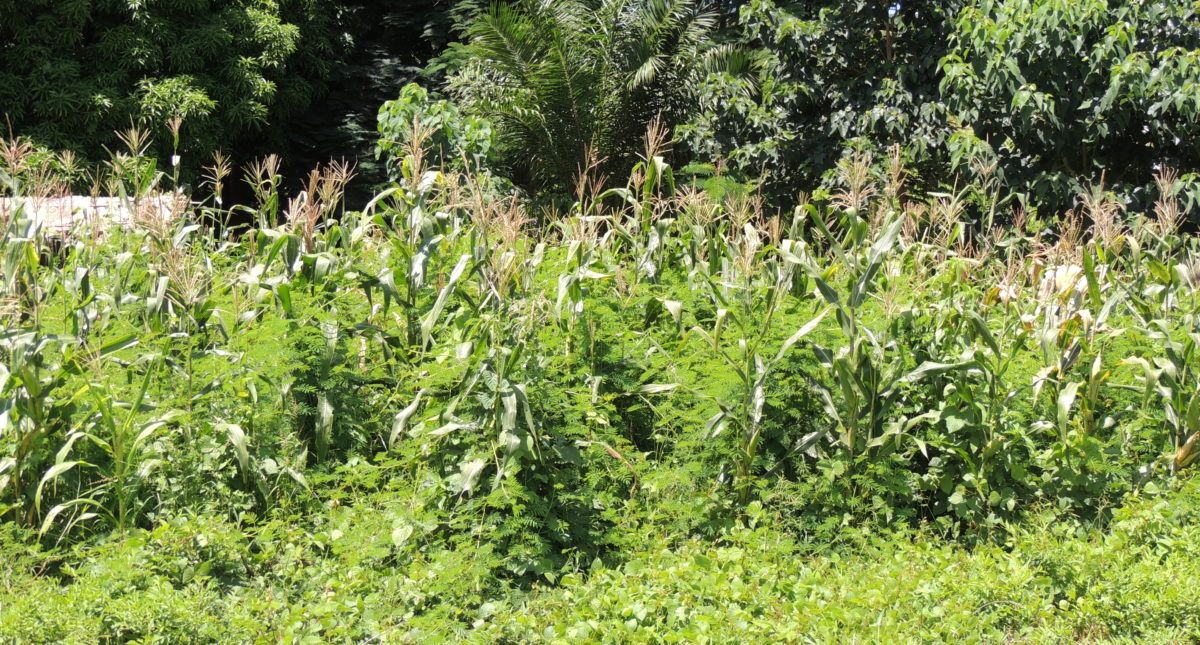SEATTLE, Washington – January 24, 2018– The JRS Biodiversity Foundation is pleased to announce a new $45,750 award to the Centre for Agriculture and Biosciences International (CABI) to publish one of the most complete and current datasets on Invasive Alien Plants (IAP) in Eastern Africa. The project will be led by Dr. Arne Witt and build upon the successful results from a previously awarded JRS Grant.
East Africa is home to important biodiversity resources, including the Eastern Arc Mountains and Coastal Forests, a Global Biodiversity Hotspot, which is home to 1,750 plant species found nowhere else in the world. This biodiversity is under threat from the spread of IAP, which can outcompete native species and have a dramatic impact on biodiversity, crop and pasture production, human and animal health, and water production. Despite the severity of the threat, in the developing world there is little to no information available on the presence, distribution, or potential impacts of invasive species. This lack of information can be a barrier to development and implementation of effective management strategies.
The current project will help to fill knowledge gaps in IAP management by cleaning and making available through the Global Biodiversity Information Facility one of Africa’s most complete and current datasets on IAP species. This dataset was collected in 2012 as part of a prior phase of this project and contains approximately 120,000 locality records of IAP species in eastern Africa, Malawi, and Zambia. Since collection there have been changes in the technology, data standards, and general approach of open data sharing that make this data publication grant possible and timely. Additionally, this project will print and distribute 1000 Field Guides to the Naturalized and Invasive Plants of Eastern Africa to partners in Uganda, Ethiopia, Kenya and Tanzania. This project will ensure that government agencies and scientists who work on the research and control of invasive plants and pests can use this remarkable dataset to develop and implement scientifically sound management strategies for responding to invasive alien species.
The JRS Biodiversity Foundation believes that elevating the value of biodiversity data will increase demand for its use by decision makers; and when they have greater access to data that is high quality, relevant, easily-accessible, and timely, they will fight to preserve biodiversity by making informed decisions about conservation and sustainable development. The award to CABI contributes to a growing constellation of JRS awards in East Africa that work to create richer data sets and information platforms as part of JRS’ program on Capacity Development.
See “CAB International (2018) – Access to Invasive Alien Plant Dataset”
About the JRS Biodiversity Foundation – The mission of the JRS Biodiversity Foundation is to increase access to and use of information that will lead to greater biodiversity conservation and more sustainable development in sub-Saharan Africa. Founded in 2004, the JRS Biodiversity Foundation supports biodiversity data and knowledge tools that are used to preserve biodiversity in developing economies where biodiversity is most threatened. The foundation has awarded $16M in grants since 2007. Visit online at https://jrsbiodiversity.org
About the Centre for Agriculture and Biosciences International – CABI is an international not-for-profit organization that improves people’s lives by providing information and applying scientific expertise to solve problems in agriculture and the environment. Through knowledge sharing and science, CABI helps address issues of global concern such as improving global food security and safeguarding the environment. We do this by helping farmers grow more and lose less of what they produce, combating threats to agriculture and the environment from pests and diseases, protecting biodiversity from invasive species, and improving access to agricultural and environmental scientific knowledge. Our 48 member countries guide and influence our core areas of work, which include development and research projects, scientific publishing and microbial services. Visit online at https://www.cabi.org/.
Click here to download this announcement.
JRS Contact: Don S. Doering, Executive Director, ddoering@jrsbiodiversity.org
CABI Contact: Arne Witt, Invasive Species Coordinator, a.witt@cabi.org
# # #

